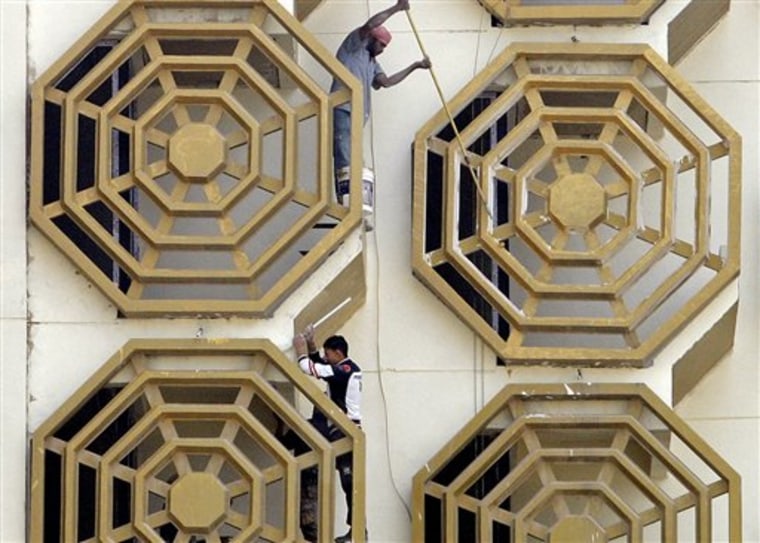Insurgent threats and a lack of hotel space for delegations pose stiff challenges to Iraq's plans to host the annual Arab League meeting for the first time in 20 years, despite assurances from the body's leader Sunday.
Iraq's government is hoping the summit will showcase what Prime Minister Nouri al-Maliki has described as the nation's improved security and pump foreign money into the parched local economy.
"We are seeking this summit because it will confirm Iraq's return to its leading role, and that Iraq is an important Arab country," Arab League Secretary General Amr Moussa said during a short speech Sunday to Iraq's parliament. "The Arab League is concerned about Iraq now and in the future."
The government is spending hundreds of millions of dollars to rebuild palaces and hotels where thousands of delegates from the 22-nation group are expected to stay on the summit's March 23 start.
Observers say, however, that a lack of hotel space and threats from militants could stymie the government's dream to host the summit.
This week, a militant website posted a message from insurgent group Ansar al-Islam threatening to attack the summit and any political or business officials associated with it. Ansar al-Islam is a radical Sunni Arab group linked to al-Qaida.
"The meeting of the Arab tyrants in Baghdad is part of the American project for normalization relations with the U.S. government in Baghdad," the website message said. "Any Arab political or commercial official in Iraq will be a military target for Mujahideen."
Another concern is where the delegates — and the security officials and media traveling with them — will stay.
Khalid Hussain, managing director of the Palestine Hotel in Baghdad said the government estimated as many as 5,000 rooms would be needed to house entourages across the capital, while only 1,800 rooms will be available — assuming repairs proceed uninterrupted.
Construction crews are hard at work on the Palestine and Sheraton hotels in central Baghdad after both were severely damaged in a car bombing a year ago, although some guests have returned to the Palestine.
Hussain, the hotel's manager, said the Iraqi government will spend more than $30 million to refurbish the Palestine, where the lobby is far from finished.
Work on much of the hotel — including shops, banquet halls and landscaping — won't be done until after the summit. Most guest rooms won't be ready until mid-February at the very earliest.
"We're doing our best with everything to be done by the summit," Hussain said. "We have gotten a good start."
Heads of states and royalty are expected to stay at their embassies or otherwise secure housing in the heavily fortified Green Zone.
Salman Shaikh, director of the Brookings Doha Center think tank in Doha, said he is "skeptical" the meeting will happen as planned.
"This is a big deal in setting that target, and I am sure they are trying to do their absolute best," Shaikh said Sunday. "They set a high bar in pulling this off."
_____
Associated Press Writers Sinan Salaheddin, Hamid Ahmed and Mazin Yahya in Baghdad contributed to this report.
